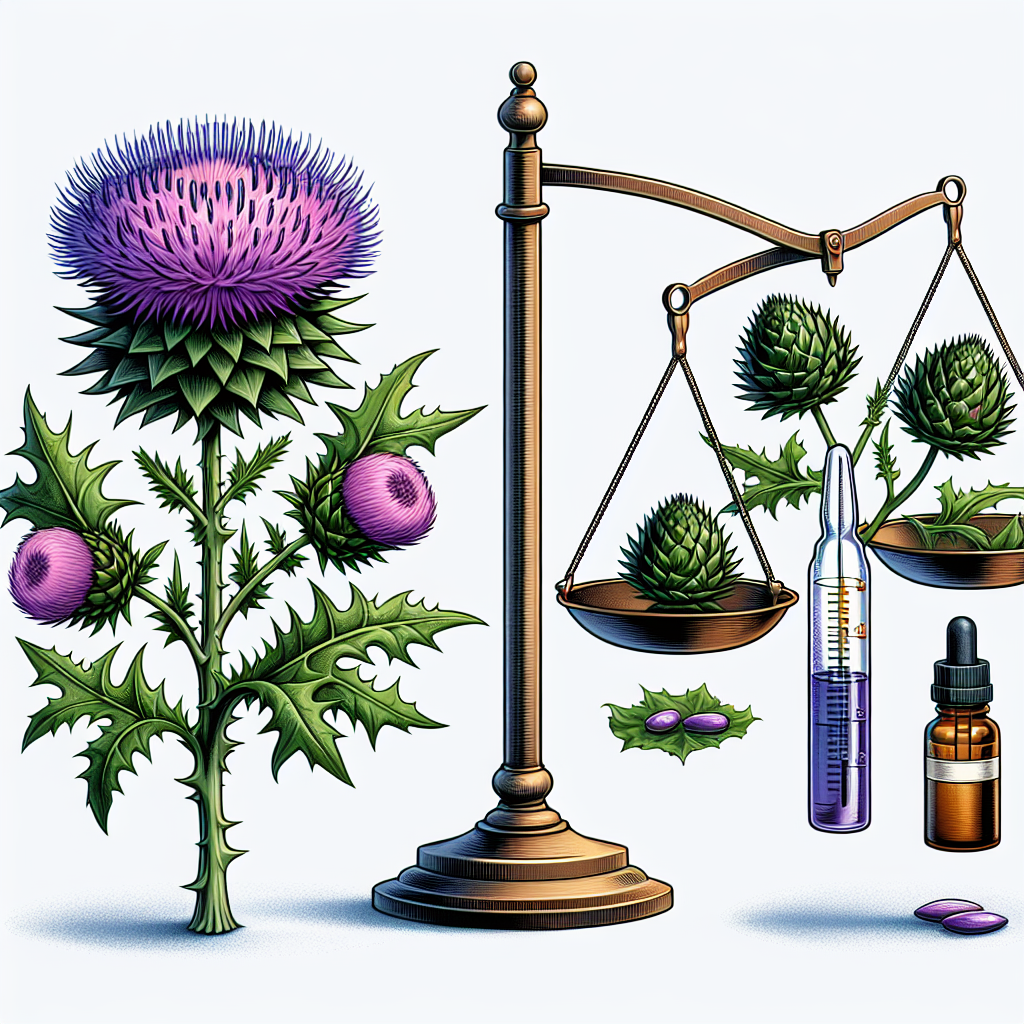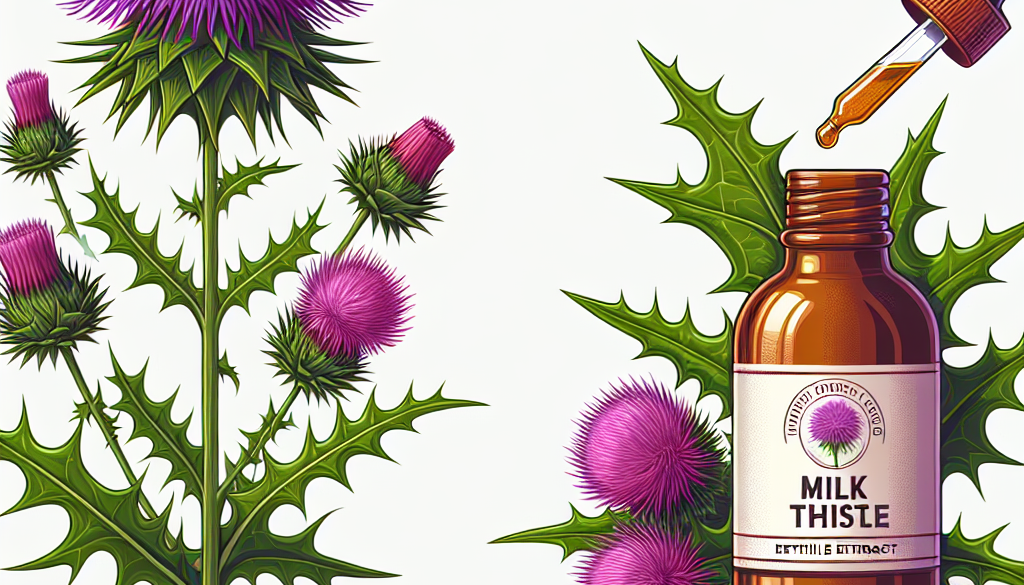Milk Thistle vs Milk Thistle Extract
-
Table of Contents
- Milk Thistle vs. Milk Thistle Extract: Unveiling the Potent Liver Protector
- Understanding Milk Thistle
- The Active Components
- Milk Thistle Extract: A Concentrated Form
- Benefits of Milk Thistle Extract
- Whole Milk Thistle: The Natural Source
- Advantages of Whole Milk Thistle
- Scientific Evidence and Clinical Studies
- Case Studies and Research Findings
- Choosing Between Milk Thistle and Milk Thistle Extract
- Conclusion: Harnessing the Power of Milk Thistle
- Discover ETchem’s Protein Products
Milk Thistle vs. Milk Thistle Extract: Unveiling the Potent Liver Protector

Milk thistle, a natural herb with a storied history of medicinal use, has been a subject of interest for its potential liver-protecting properties. In the quest for optimal health benefits, consumers often encounter two main forms of this plant: whole milk thistle and milk thistle extract. Understanding the differences between these two can be crucial for those looking to incorporate this supplement into their health regimen. This article delves into the nuances of milk thistle versus milk thistle extract, exploring their benefits, uses, and the science behind their liver-supporting claims.
Understanding Milk Thistle
Milk thistle (Silybum marianum) is a flowering herb related to the daisy and ragweed family. It is native to Mediterranean countries but can now be found throughout the world. The plant is distinguished by its glossy, marbled leaves and a purple flower that contains the seeds from which the active compounds are derived.
The Active Components
The seeds of milk thistle contain a group of bioactive compounds collectively known as silymarin. Silymarin is composed of several flavonolignans, including silybin, silydianin, and silychristin, with silybin being the most potent and well-researched. These compounds are believed to be responsible for the plant’s therapeutic effects.
Milk Thistle Extract: A Concentrated Form
Milk thistle extract is a concentrated form of the active ingredients found in the seeds of the plant. It is typically standardized to contain a high percentage of silymarin, ensuring a consistent dose of the active compounds in each serving. The extraction process involves separating these compounds from the plant material, resulting in a more potent product than the whole herb.
Benefits of Milk Thistle Extract
The extract form of milk thistle is often preferred for its higher concentration of silymarin, which may offer several health benefits:
- Liver Health: Silymarin has been shown to support liver function by protecting against toxins, promoting the regeneration of liver cells, and exhibiting anti-inflammatory and antioxidant effects.
- Antioxidant Activity: The flavonolignans in milk thistle extract act as antioxidants, scavenging harmful free radicals and preventing oxidative stress.
- Anti-inflammatory Properties: Silymarin may help reduce inflammation, which is beneficial for various health conditions, including liver diseases.
Whole Milk Thistle: The Natural Source
Whole milk thistle refers to the use of the entire seed or parts of the plant in their natural form. This form may include ground seeds, capsules containing powdered seeds, or teas brewed from the seeds or leaves. While not as concentrated as the extract, whole milk thistle still contains the beneficial silymarin complex.
Advantages of Whole Milk Thistle
Some proponents of whole milk thistle argue that the natural form of the herb may offer advantages over the extract:
- Full Spectrum of Compounds: Whole milk thistle contains all the natural compounds found in the seeds, not just silymarin, which may contribute to its overall health effects.
- Fiber Content: The seeds also provide dietary fiber, which can support digestive health.
- Traditional Use: Whole milk thistle has been used for centuries in traditional medicine, and some users prefer to stick to the traditional forms of herbs.
Scientific Evidence and Clinical Studies
Research on milk thistle and its extract has yielded promising results, particularly in the context of liver health. Numerous studies have investigated the efficacy of silymarin in treating liver diseases such as cirrhosis, hepatitis, and liver damage caused by toxins.
Case Studies and Research Findings
One notable study published in the “World Journal of Hepatology” found that silymarin significantly improved liver function in patients with alcoholic liver disease. Another study in the “Journal of Hepatology” reported that milk thistle extract may help reduce liver inflammation and fibrosis in patients with chronic hepatitis C.
Despite these positive findings, more research is needed to fully understand the extent of milk thistle’s benefits and the optimal form and dosage for various health conditions.
Choosing Between Milk Thistle and Milk Thistle Extract
When deciding between whole milk thistle and milk thistle extract, consider the following factors:
- Potency: If you are seeking a higher concentration of active compounds, milk thistle extract may be the better choice.
- Purpose: Consider what health benefits you are aiming for and whether the scientific evidence supports the use of milk thistle or its extract for that purpose.
- Personal Preference: Some individuals prefer whole herbs for their natural composition, while others opt for standardized extracts for consistency and potency.
Conclusion: Harnessing the Power of Milk Thistle
In conclusion, both milk thistle and milk thistle extract offer potential health benefits, particularly in supporting liver health. The choice between the two depends on individual preferences, desired potency, and specific health goals. As with any supplement, it is essential to consult with a healthcare provider before starting any new regimen, especially for those with pre-existing health conditions or those taking medications.
Discover ETchem’s Protein Products
For those interested in enhancing their health and wellness routine with high-quality protein products, ETchem offers a range of collagen-based supplements. Their products are sourced from various types, including marine, fish, bovine, and chicken collagen, catering to diverse dietary needs and preferences. ETchem’s commitment to quality and customer satisfaction makes them a top choice for individuals seeking to incorporate premium protein supplements into their diet.
About ETChem:
ETChem, a reputable Chinese Collagen factory manufacturer and supplier, is renowned for producing, stocking, exporting, and delivering the highest quality collagens. They include marine collagen, fish collagen, bovine collagen, chicken collagen, type I collagen, type II collagen and type III collagen etc. Their offerings, characterized by a neutral taste, instant solubility attributes, cater to a diverse range of industries. They serve nutraceutical, pharmaceutical, cosmeceutical, veterinary, as well as food and beverage finished product distributors, traders, and manufacturers across Europe, USA, Canada, Australia, Thailand, Japan, Korea, Brazil, and Chile, among others.
ETChem specialization includes exporting and delivering tailor-made collagen powder and finished collagen nutritional supplements. Their extensive product range covers sectors like Food and Beverage, Sports Nutrition, Weight Management, Dietary Supplements, Health and Wellness Products, ensuring comprehensive solutions to meet all your protein needs.
As a trusted company by leading global food and beverage brands and Fortune 500 companies, ETChem reinforces China’s reputation in the global arena. For more information or to sample their products, please contact them and email karen(at)et-chem.com today.




